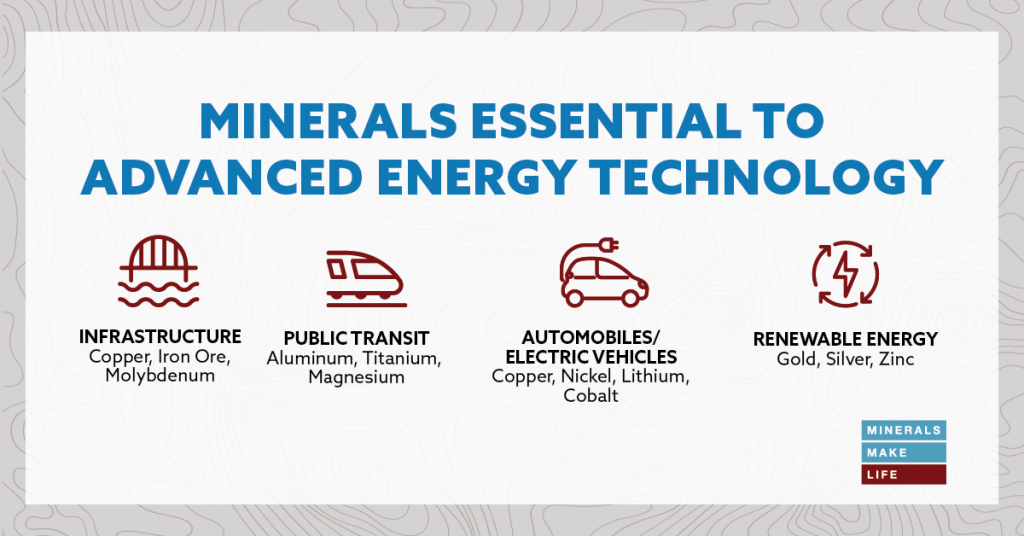February 18, 2026
U.S. Still Heavily Import-Reliant for Minerals—Permitting Reform Can Break the Cycle
U.S. Still Heavily Import-Reliant for Minerals—Permitting Refor...
Read More ›
As nations compete to lead the future of advanced energy, minerals mining and strong domestic supply chains will be an essential foundation for success. To ensure the U.S. can maintain its competitive advantage as a leader in innovative technology, policymakers must commit to proactively advancing domestic mining and strengthening our domestic supply chain by reforming our mine permitting process.
For decades, China has invested heavily to control entire supply chains for advanced energy production and manufacturing. From minerals mining, to processing facilities and capabilities, to assembly plants that manufacture and build key components for battery storage and other alternative energy.
The U.S. is waking up to this reality. Nearly every sector of American manufacturing is and will continue to be connected to minerals and if the U.S. wants to lead the global advanced energy future, we must make the necessary changes to secure our mineral supply chains or be forced to forfeit our place as a leader in advanced technology and energy manufacturing.
There is clear bipartisan consensus that metals production will define the future of global trade. Congress recently included measures in a comprehensive energy bill from both the House and Senate that support the goal of reshoring mineral supply chains and boosting domestic minerals production.

Metals are vital to our economic future. Take transportation as an example. According to Deloitte, global electric vehicle sales are expected to grow exponentially from 2.5 million in 2020 to 11.2 million in 2025, then reaching 31.1 million by 2030. The U.S. can be a leader in this advanced energy manufacturing for battery storage and electric vehicle production with a renewed commitment to domestic mining.
While the U.S. has vast amounts of untapped mineral resources, mineral demand will quickly outpace U.S. mining’s ability to respond. On average it takes seven to 10 years to get a mining permit in the U.S. while in Canada and Australia it takes two to three years. Recently, the Canadian government announced plans to invest heavily in its domestic metals mining to ensure it can keep pace with demands for advanced batteries, solar panels and other alternative energy sources.
Policymakers must decide if the U.S. will become a leader in advanced energy technology and manufacturing. To do so will require commonsense and bipartisan actions to update the mine permitting process to allow domestic miners to step up and meet the needs of increased demands for important minerals.